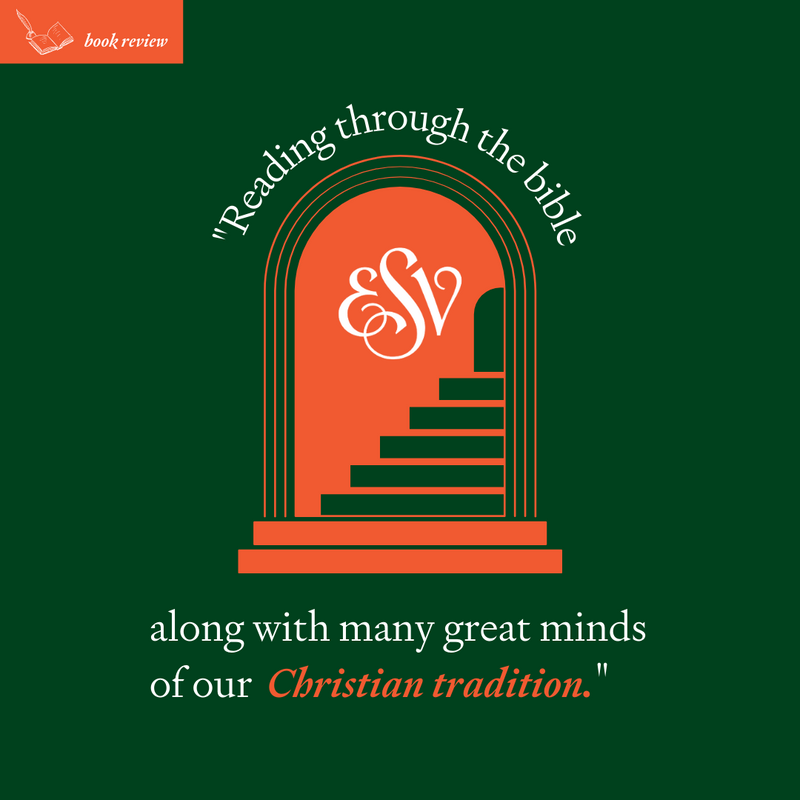As a person who has lived without a study Bible for most of my life (I received my first one four or five years ago), I am still warming up to their usage. In my view, the value of a study Bible edited by trusted authors is in its useful comments and exegetical tools, which can provide a starting point in a deeper study of the Scriptures.
Because of my interest in church history, I was intrigued when Crossway published the ESV Church History Study Bible in 2022, and am grateful for a chance to review it. It is a beautiful volume, available in several covers (including black genuine leather).
What This Bible Is Not
It is important to note from the start that this Bible is not an exegetical tool. It includes cross-references, in fine print, but no discussions on the meaning of words or the historical background of texts. Alternative translations are given only occasionally.
Neither does it include a detailed explanation of how the Bible was interpreted throughout history. This is what I originally expected, judging by the title. In fact, the introductions to each book in the ESV Reformation Study Bible, published by Reformation Trust Publishing in 2015, include more thorough explanations of their interpretative history than the introductions in this Bible – which are usually limited to one or two quotes.
Besides, the 20,000 quotes included as commentaries or study notes are not representative of the whole scope of church history. Of the “over 300 authors” the Bible is quoting, only 16 (according to my calculations) are included from the period between the seventh and the fifteenth centuries. The first six centuries are slightly better represented, with 52 authors.
Also, even when an author’s name appears in the list of authors at the end of the volume, it doesn’t mean that the author is given much space. While I was pleased to see a representation of women (14 in total) and intrigued to see unexpected authors such as John Nelson Darby and the Quaker Sarah Smiley, I have yet to find quotes by these authors in the Bible. I suspect they are rare, while the majority of the quotes are from well-known authors such as John Calvin, Matthew Henry, Charles Spurgeon, and Martin Luther.
In fact, my curiosity about these voices was frustrated by the fact that the list of authors does not include page numbers where these authors can be found. This is understandable, because it would have added some pages to an already full volume.
And while I applaud the fact that the editors included an article on the importance of studying the development of the global church, apart from early authors such as the North African church fathers and a few representatives of the Syrian church, writers and theologians from Asia, Africa, and South America are not included. To be true to the article, it would have been good to hear some of their voices. For example, Byang Kato, Wang Mingdao, and Pablo Besson would have added to the conversation.
What This Bible Is
This critique is not meant to devalue this Bible, which was carefully put together by an impressive number of respected authors, including Lee Gatiss, Gerald Bray, Michael Haykin, Chad Van Dixhoorn, Jonathan Gibson, and Keith Mathison. It is simply meant as a guide to the reader to know what to expect.
Once readers understand that this is not a survey of the history of biblical interpretation, nor an attempt to include voices from all times and continents, they can enjoy this Bible for what it is and for the purposes for which it was intended.
For instance, it can be particularly valuable as a devotional tool. The chosen quotes by various preachers and theologians are largely inspirational and seem to eschew controversy. For example, a note to Genesis 3:16 includes the more traditional translation of the Hebrew el as “toward” rather than “contrary to.” And the corresponding quote is by Martin Luther, who emphasizes in Eve’s punishment “the blessing of fruitfulness and of continuing in marriage union with her husband,” besides “the sure promise that from her should come that seed which should bruise the head of Satan.”
Given the general lack of interpretative discussion and contrasting voices in the comments, readers might find themselves in occasional disagreement with the opinions of some of the quoted authors. Even this, however, can stimulate reflection and further study.
This volume’s back matter includes a reading plan, a large concordance, and fifteen colorful maps. Twelve articles on different historical times or subjects, written by Gerald Bray and Stephen Nichols (the editors), Julius Kim, Michael Haykin, John Fesko, Joel Beeke, Chad Van Dixhoorn, Douglas Sweeney, Carl Trueman, and Conrad Mwebe, are well-worth reading and re-reading.
In sum, the ESV Church History Study Bible can be a useful tool for both pastors who are looking for resources and illustrations to enrich their sermons and for lay readers who want to read through the Bible along with many great minds of our Christian tradition. While I was reading the account of Christ’s death and resurrection in the gospel of John, for example, I found a wonderful quote by Geerhardus Vos that moved me to read the whole sermon that included it: “Rabboni” (in Geerhardus Vos, Grace and Glory). I had never read it before, and it was most encouraging!
In addition, pedants like me who wonder about the many authors listed in the Author Index but rarely encountered in the comments can quench their curiosity by going through a systematic reading of this Bible and noting these authors as they discover them—which might have been the editors’ idea all along!
Simonetta Carr is the author of numerous books, including Broken Pieces and the God Who Mends Them: Schizophrenia through a Mother’s Eyes, and the series Christian Biographies for Young Readers (Reformation Heritage Books).




